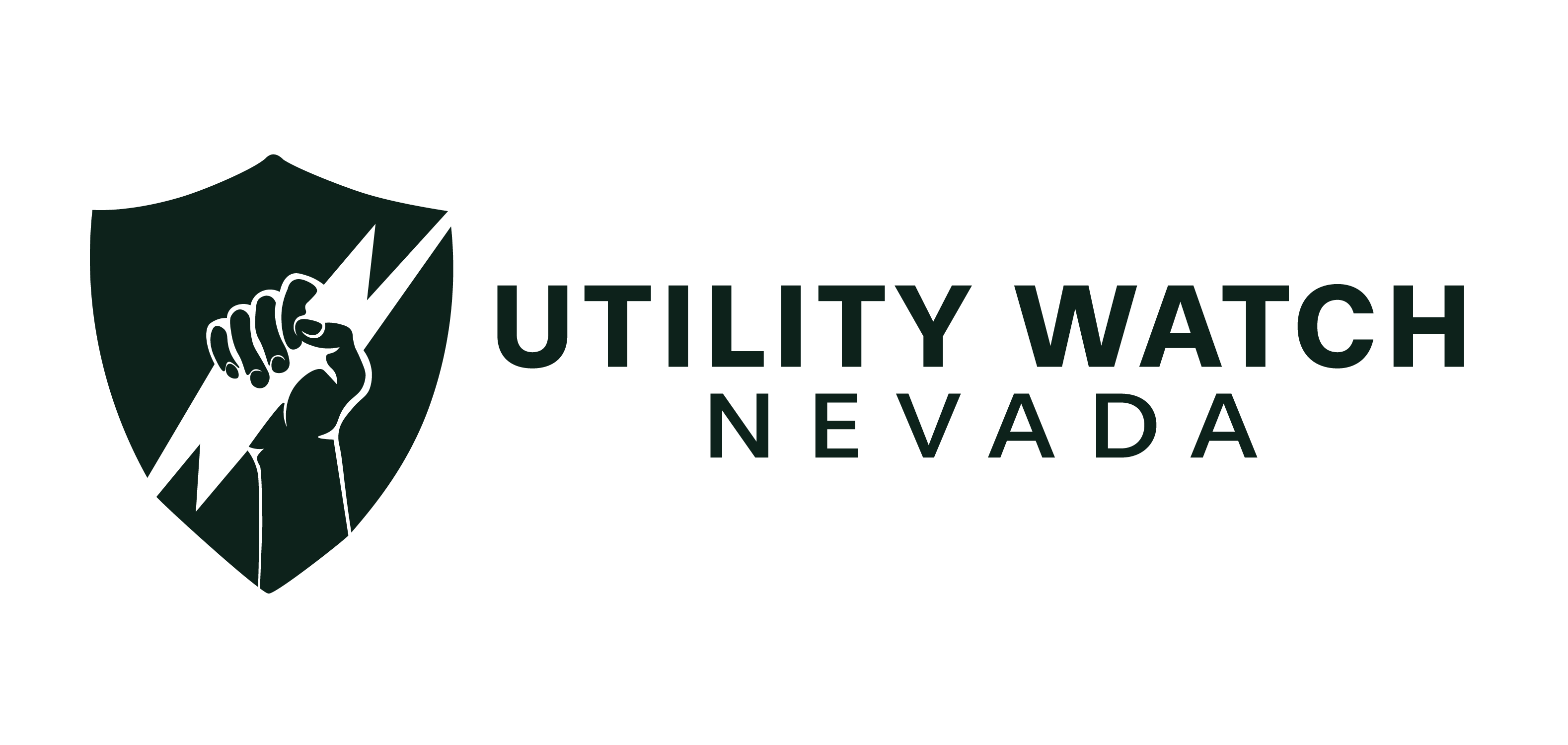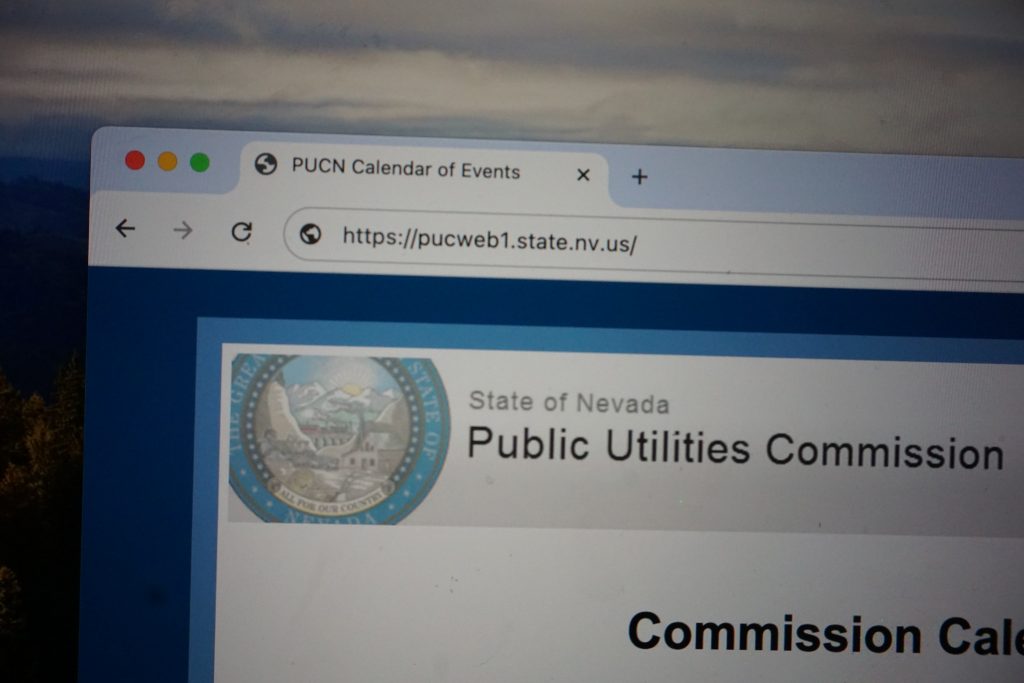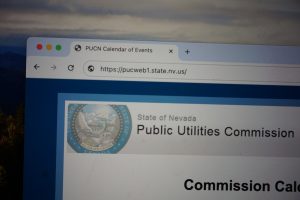This opinion was published by the Reno Gazette Journal.
Re: “PUC denies NV Energy bid to triple service charge in Northern Nevada,” Sept. 19:
For-profit monopoly businesses are a rarity in our capitalist economy. Sometimes they happen by default when one entity so dominates a sector and they drive out the competition — like Google or Amazon. In other instances, monopolies are explicitly authorized by statute to provide what are deemed essential services.
This is the case with Sierra Pacific Power Company providing for profit electric services to Northern Nevada. By statute, electric services are deemed by the Legislature to be a monopoly service and Sierra Pacific is granted an exclusive monopoly franchise by the Nevada Public Utilities Commission (PUCN) to provide those services throughout the northern part of the state, including the Reno-Sparks-Carson City area. Sierra Pacific’s sister company, Nevada Power, provides similar monopoly service in the Las Vegas area. Both companies are owned under the umbrella company NV Energy. NV Energy, in turn, is owned by the parent company, Berkshire Hathaway Holdings. Although electric services can be provided competitively and are done so in a number of other areas of the country, our electric services remain a monopoly here in Nevada.
Without competition, monopoly power must be regulated. Otherwise there would be no check on either the level of rates charged for electricity by Sierra Pacific, the profits it earns from us, or the quality of service it provides. You cannot simply switch companies if you don’t like Sierra Pacific. There is no one else to go to unless you can afford to self-supply your own power with solar on your roof and a battery or electric vehicle in your garage to provide you power 24/7.
Fortunately for us, however, there is someone who is charged by the Legislature with holding this for profit monopoly in check. It is the same entity who grants Sierra Pacific their monopoly power in the first place, the PUCN. This commission is composed of three individuals appointed by the governor to act as a surrogate for competition. They do so by regulating the rates and level of profit the monopolies that provide Nevadan’s with electric services are allowed to make. The commission also oversees other monopoly utility services such as methane gas services and water.
Not a consumer-friendly proposal
The need for this regulator-on-the-beat became painfully apparent recently when Sierra Pacific attempted to flex its monopoly might. Sierra attempted to convince the PUCN in its latest rate case that it needed to increase the basic service charge for residential consumers from the current rate of $16.50 per month to a whopping $45.30, or a 175% increase! This basic service charge is just for being connected to the Sierra Pacific wire from your house. It pays for no electricity, just the connection. It is like the member fee you pay at Costco for the privilege of shopping in their store. But you can go to Walmart or Target or WinCo instead and pay nothing to shop at those stores. With Sierra Pacific, it is a one-stop/only-stop shop for electric service.
At hearing before the PUCN, the Nevada Attorney Generals Bureau of Consumer Protection (an office that I once headed) testified that Sierra Pacific’s basic service charge proposal was of great concern to the Bureau because it would “… punish energy conservation, and possibly reward higher consumption, reduce participation in distributed energy resources and demand-side management programs, harm low-income customers using FlexPlay, be unpopular with customers, and result in higher utility rates over time.” Clearly this was not a consumer-friendly proposal.
Adding to the Bureau’s concerns at hearing, PUCN staff (I was also staff counsel to the PUCN once) testified that it was concerned Sierra Pacific’s proposed service charge increase would “… benefit those residential customers who use more energy rather than those who use less.” Staff also expressed surprise at the Sierra proposal in that “… Sierra is looking to recover distribution costs with this [service charge] increase, something Staff has not seen before in a rate case.” Sierra Pacific was, according to PUCN staff, attempting to increase rates in a way that would primarily benefit the highest residential users of energy on its electric grid to the detriment of small users. And it was doing so with a proposal that was unprecedented in the history of the UCN. It takes an entity with a strong sense of its entitlement to be so audacious. Such an attitude brings back flashes of Ernestine the Telephone Operator on the ’70s TV sitcom “Laugh-In.”
PUCN did its job — this time
Fortunately, on Tuesday, the PUCN did its job and rejected Sierra Pacific’s proposal to jump its basic residential service charge an exorbitant amount. Instead it only granted Sierra Pacific a $2 increase, or 12%, rather than 175%. In doing so the PUCN did say, however, that the magnitude of the proposed Sierra Pacific increase was “… not appropriate at this time …” — which of course begs the question, will it be appropriate at some future time? The PUCN also in its decision mentioned the rate-making concept of gradualism — basically meaning $2 today, perhaps $2 at some future time, and after that, who knows? It reminds me of the story of the frog in the pot of water set to slowly rise to the boiling point. Ouch!
So Tuesday the PUCN did its job. The current three commissioners we have are independent, intelligent and honest public servants who work for salaries far below their counterparts at Sierra Pacific. So are the PUCN staff and the attorneys and experts working for the Bureau of Consumer Protection. But we must all remember, in giving Sierra Pacific the mantle of a for-profit state-sanctioned monopoly, we create an entity that is allowed to spend our money which it fully recovers in the rates it charges us to propose changes that primarily benefit its bottom line regardless of the impact on consumers.
Will the PUCN and staff and the BCP do their job next time? We all hope so. What we can count on is the Sierra Pacific will be back, again and again — think Terminator, doing what its monopoly status compels it to do: use our dollars to seek to maximize its profits for its parent corporation, Berkshire Hathaway. The only way to break that cycle is to change the nature of the beast.
Jon Wellinghoff was Nevada’s first consumer advocate representing utility consumers before the Nevada Public Utilities Commission (PUCN). He was also staff counsel to the PUCN and a former chairman of the Federal Energy Regulatory Commission in Washington, D.C. Jon currently is the CEO of the consulting firm GridPolicy and lives with his wife and daughter in Reno.





